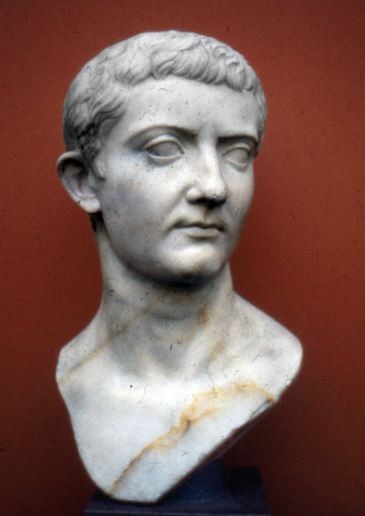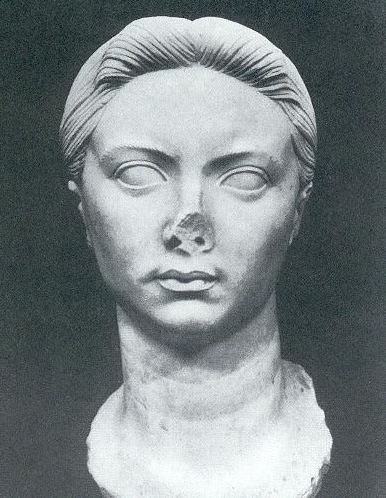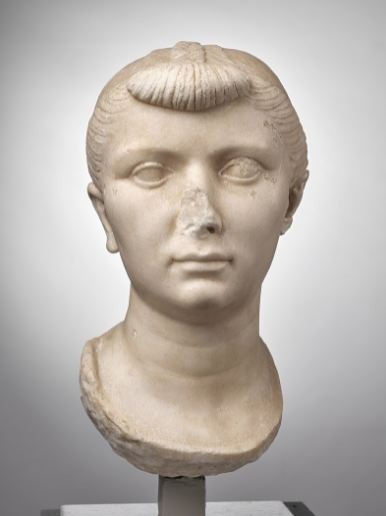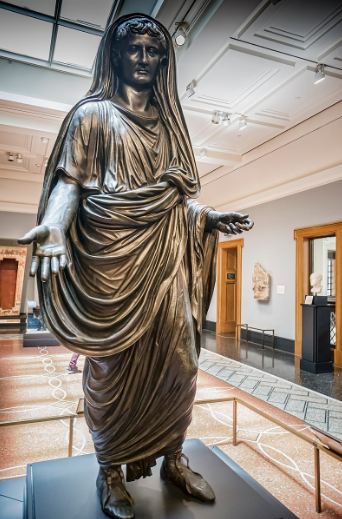The long-ruling Roman Emperor Tiberius, born on 16 November 42 BCE, was famously known for his commendable military accomplishments. He was born in an aristocratic home. Although Tiberius held the fourth position in line for the throne, he managed to gain his successor’s considerable trust in handing him over significant responsibilities.
Initially, the Roman emperor had administrative responsibilities, but he soon became an intimidating military leader with his incredible performance and led successful military campaigns in Europe. He was not a happy person for most of his life, even after so many achievements – for the main reason being breaking up with his wife, Vipsania. He retired to Rhodes, abandoning his position and responsibilities, leaving everyone in shock because, at that time, he was at the peak of his ruling era.
Apart from all of this, Tiberius was also known for his trial of treason and most famously for shirking his position and responsibility and living in seclusion.
Quick Facts
- Known For: Being a Roman Emperor in the first century CE
- Born: 16 November, 42 BCE on the Palatine Hill, Rome
- Parents: Tiberius Claudius Nero (85–33 BC) and Livia Drusilla
- Died: 16 March, 37 CE in Rome
- Education: Studied with Theodorus of Gadara and Nestor the Academic
- Spouse(s): Vipsania Agrippina (m. 19 BCE), Livia Julia the Elder, (m. 11 BCE)
- Children: Drusus Julius Caesar (with Vipsania), Julia, Ti Gemellus, Germanicus (all with Julia)
Early Life
Born on 16 November, 42 BCE on the Palatine Hill, Rome, Tiberius, the first-century emperor, was the son of the Roman quaestor Tiberius Claudius Nero (85–33 BC) and Livia Drusilla. Tiberius’s parents Nero and Drusilla got divorced in 39 BCE, and his mother Livia later married the roman emperor Gaius Julius Caesar Octavianus. His father died when he was 9 years old. He rode in a chariot at the age of 12 with his stepfather Octavian to celebrate the success over Antony and Cleopatra at Actium
Marriage and Personal Life
Emperor Tiberius was married to the daughter of famous Roman general Marcus Vipsanius Agrippa, Vipsania Agrippina, in 19 BCE. Tiberius and Vipsania had a son together named Drusus Julius Caesar. Tiberius and Vipsania together were a lovely couple and had a beautiful life until Augustus forced Tiberius to divorce Vipsania and marry his daughter Livia Julia, the Elder.
Julia was the widow of Agrippa. Tiberius and Julia had three children together – Julia, Ti Gemellus, and Germanicus. Tiberius was not happy to divorce his first wife, and his sadness was also reflected in his performance as an emperor. He could never love Julia as he loved Vipsania. The forced marriage with Julia finally ended in 2 BCE.
Julia and Exile
Years passed, and the chemistry between Julia and Tiberius couldn’t fire up even one bit. Around 6 BCE, their marriage was on the verge of being ended, and the regret of leaving Vipsania only advanced in Tiberius’s head. Julia got exiled by her father. Tiberius lived in Rhodes for about 8 years, where he used to wear a Greek cloak and ordinary slippers. He lived his life there, attended various philosophical lectures, and attempted to return to Rome, but his petition was denied. He ended his marriage with Julia in 2 BCE.
During the period of Tiberius’s exile in Capri, his adopted grandson Caligula (Gaius Caligula) came to live with him. Tiberius included Caligula as a joint heir in his will, who later conspired to kill him when he was old, aged, and sick.
Tiberius as Emperor
Tiberius handled administrative decisions in the military from a young age. In 12 AD, his administrative powers were converted into the authorities of an emperor, and after the death of Augustus, Tiberius became the only ruler as his heir. The first few years of Tiberius’ reign were challenging because the Senate did not trust his decisions. He had proven himself quite indecisive in previous times, for which he also tried to portray himself as an unselfish ruler, but the results were not impressive. It only harmed his reputation even more.
Tiberius carried out various reforms during his reign, which included banishing astrologers, disallowing Jewish and Egyptian cults, reducing riots, and eliminating the right of sanctuary.
Soon after his governance, two northern masses in ‘Pannonia’ and ‘Germania’ began to rebel. Tiberius ordered his nephew Germanicus, who was adopted by him, to take the rebels under control. After this, Tiberius gave Germanicus the authority to control eastern provinces. In 19 AD, Germanicus died. It is said that he died due to poisoning, but the actual reason is still a mystery.
Significant Battles
Even before the accession, one of the most significant military achievements this Roman emperor made was leading an army into Armenia. The idea was to change Armenia into a Roman client-state and to end threats at the borders. He managed to falsify a pact due to which the standards were sent to the Romans while Armenia remained a free state.
In 12 BC, he ran a campaign in which he took nearly 40,000 prisoners who were later released by him and were also relocated to Gaul.
He conquered Marcomanni by joining hands with General Gaius Sentius Saturninus. It was decided between the two parties that one will attack from the east and the other will take over from the west. It was an easy victory for the Romans.
Death
Tiberius may not be one of the best Roman emperors, but he performed way better than most of his successors as a ruler. He died on 16 March 37 CE when he was 77 years old. His ruling tenure was almost 23 years. As per Tacitus, Tiberius fell quite sick, and it seemed like he would die naturally soon. This was the time when Caligula tried to take over the empire solely.
However, Tiberius recovered, and on Caligula’s request, Macro, the head of the Praetorian Guard, came in to choke and kill Tiberius, after which Caligula finally became the official emperor.



